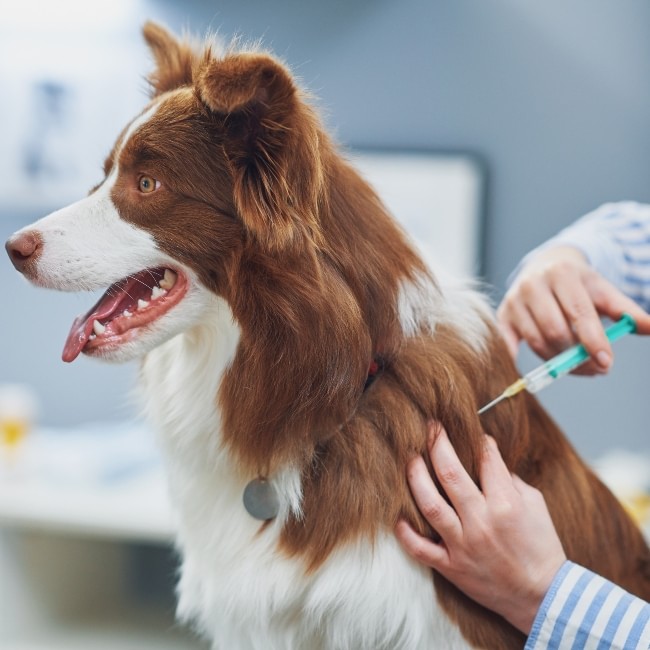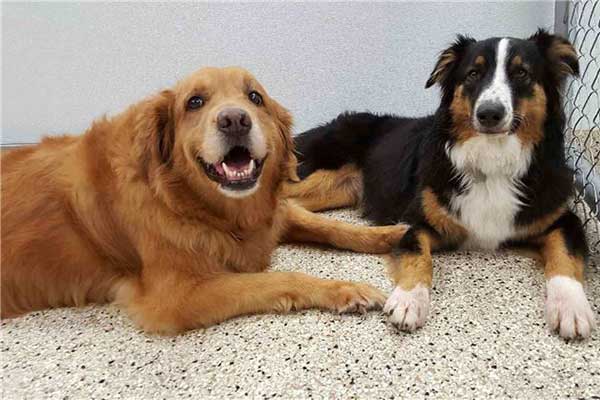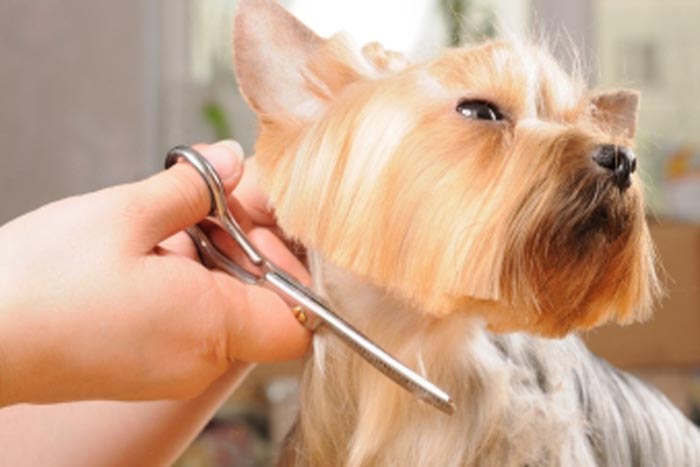Pet Vaccination FAQ
Tips for Vaccinating Your Pet in Saratoga & Campbell, CA
As a pet owner, you want to do everything possible to keep your furry friend healthy and happy. One of the most important ways to do this is by vaccinating your pet. Vaccines are a critical tool for preventing the spread of diseases in pets, just as they are for humans. At Dr. Dave’s Doggy Daycare, Boarding & Grooming, we’re dedicated to helping our Saratoga and Campbell, CA customers understand why vaccinations are essential for their pets. Below, please find the answers to frequently asked questions about vaccinating your pet.
What Is a Vaccine?
A vaccine is a biological preparation that helps protect against infectious diseases. Vaccines work by introducing a weakened or dead version of a virus or bacteria into the body. This stimulates the immune system to create antibodies that can fight off the disease. Once the immune system has created these antibodies, it can recognize and fight the disease if the animal is ever exposed to it in the future.
Why Are Vaccines Important?
Vaccines are essential for preventing the spread of infectious diseases in pets. They not only protect the individual animal that receives the vaccine but also help protect the entire pet population. Vaccines can prevent serious, sometimes deadly, diseases such as distemper, parvovirus, and rabies. Vaccines can also protect against diseases that can be transmitted from pets to humans, such as leptospirosis and rabies. In addition to protecting your pet from disease, vaccines are also cost-effective. The cost of vaccinating your pet is much less than the cost of treating a serious illness. Vaccines also save time and emotional distress by preventing the need for extensive treatments or hospitalization.
How Does Dr. Dave’s Doggy Daycare Help With Vaccinations?
At Dr. Dave’s Doggy Daycare, we understand the importance of vaccinations for your pet’s health and well-being. Our experienced staff members can provide you with information about the vaccines your pet needs and when they should receive them. You should follow the guidelines set forth by the American Animal Hospital Association (AAHA) and the American Veterinary Medical Association (AVMA) for pet vaccinations. These guidelines recommend that pets receive core vaccines, which are vaccines that protect against the most serious diseases, as well as non-core vaccines, which are vaccines that protect against diseases that are specific to the pet’s lifestyle and risk factors.
Why Are Vaccine Schedules Important?
Ask your veterinarian about a vaccine schedule to ensure your pet receives vaccines at the appropriate times. Puppies and kittens require a series of vaccines to build up their immunity, and adult pets require booster shots to maintain their immunity. Vaccinating your pet is a critical aspect of responsible pet ownership. Vaccines protect against serious and sometimes deadly diseases and are cost-effective in the long run. Dr. Dave’s Doggy Daycare requires pets to have up-to-date vaccinations before boarding, grooming, or receiving daycare services at our facilities.

Do Pet Vaccines Have Side Effects?
There are many benefits to vaccinating your pet. The most obvious is that it can protect them from diseases that can be very dangerous or even fatal, such as rabies and distemper. Vaccines also help keep your dog healthy by preventing the spread of disease in the community, which is especially important if you have other pets that may be at risk for contracting these illnesses. There are some risks associated with vaccinations though, so it’s important to understand what they are before deciding whether or not to get them for your furry friend!
Some vaccines cause mild side effects such as redness around the injection site, but these go away quickly without any treatment needed (and they’re nothing compared to how bad distemper would feel). Other times, there might be more serious reactions like swelling around one eye or vomiting after getting vaccinated. These symptoms can usually be treated at home by administering antihistamines such as Benadryl® syrup orally up until 24 hours after vaccination day as long as there aren’t any other health concerns present (such as allergies). Always consult your veterinarian prior to administering Benadryl for dosage and if your dog has any underlying conditions medical condition where the drug should be given.
Contact Dr. Dave’s Doggy Daycare to Learn More
If you want to keep your pet healthy and happy, it’s important to get them vaccinated. If you’re unsure about what vaccines are available or how they work, this article should help answer some of your questions. If you’re considering bringing home a new puppy or kitten, be sure to talk with the breeder or shelter staff about vaccination schedules and other important information related to keeping your new friend healthy in the long term. Our goal at Dr. Dave’s Doggy Daycare is to create an environment where pets are happy while they’re away from home so they can return back feeling refreshed after their stay with us. Contact us today to learn more about our pet vaccination requirements at our facilities!



